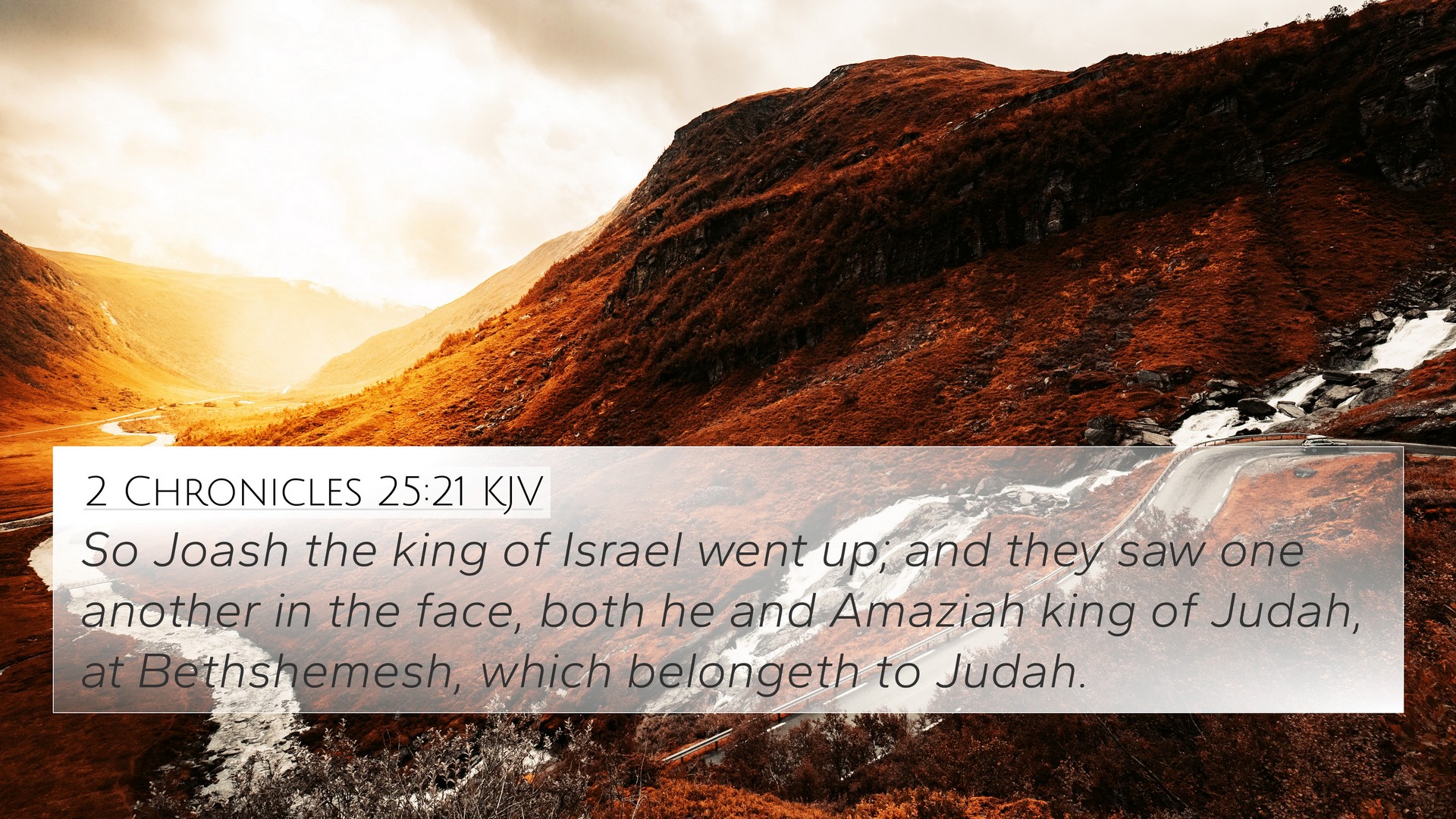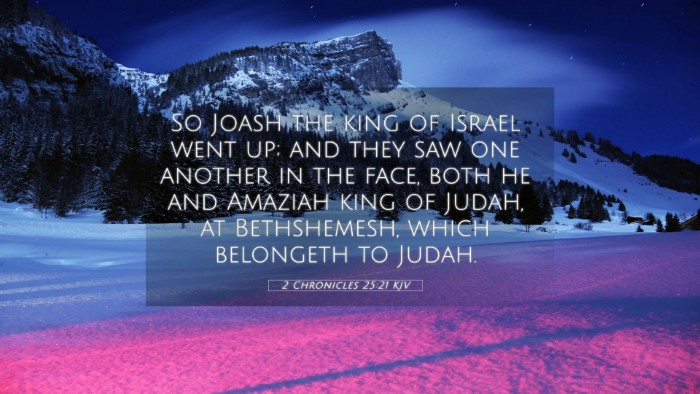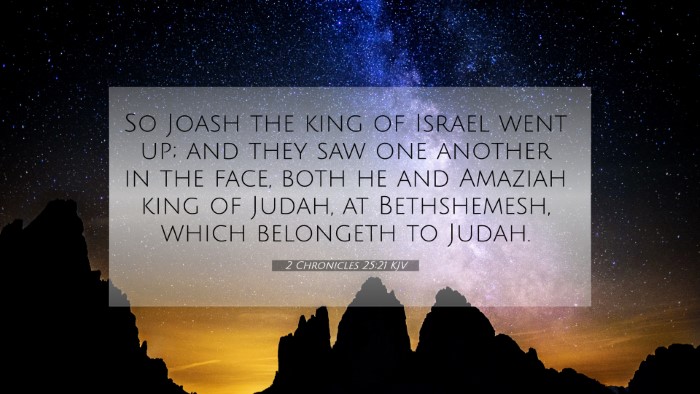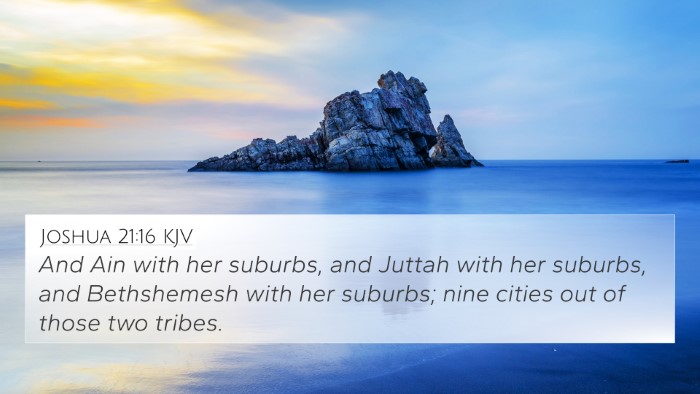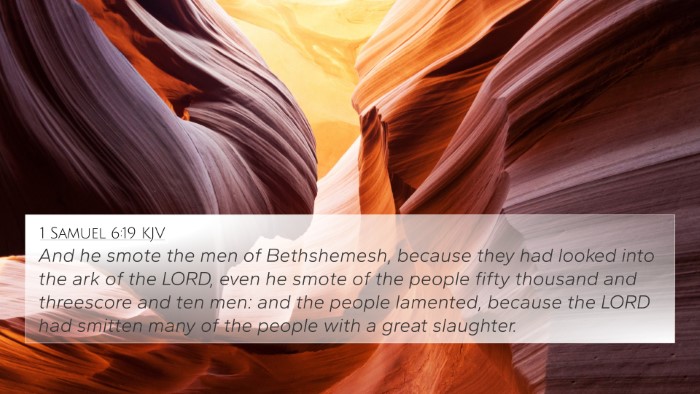Bible Verse Meaning: 2 Chronicles 25:21
Verse: "So Joash king of Israel went up; and they saw one another in the face of the battle, and Joash said to Amaziah, 'You have come down to fight against me?'" (2 Chronicles 25:21)
This verse describes a critical moment in the confrontation between Joash, king of Israel, and Amaziah, king of Judah. It encapsulates themes of conflict, rivalry, and divine sovereignty that run through the narrative of 2 Chronicles.
Summary of Interpretations
This analysis draws from various public domain commentaries to provide a comprehensive understanding of the verse.
Matthew Henry's Commentary
Matthew Henry emphasizes the folly and pride of Amaziah in believing he could challenge Joash. He notes that Amaziah had invited trouble by not recognizing his limitations and the consequences of his actions. Henry highlights that this verse serves as a lesson on humility and the dangers of overreaching one's capacity in both spiritual and earthly battles.
Albert Barnes' Notes
Albert Barnes focuses on the historical context of the conflict. He points out that Joash, having successfully defeated a powerful enemy, sought to assert his dominance over Amaziah. Barnes underscores the significance of this encounter as it illustrates the struggles for power between the northern and southern kingdoms of Israel and Judah, reflecting the broader theme of division within the nation.
Adam Clarke's Commentary
Adam Clarke provides insights into the personalities involved. He asserts that Joash acted strategically, knowing that the timing and location of the confrontation were favorable to him. Clarke discusses the implications of this confrontation in light of God’s judgment upon Amaziah for having turned to idols, suggesting that this battle was as much about divine justice as it was about political power.
Key Themes
- Conflict and Rivalry: The direct confrontation between two kings symbolizes the larger ideological and cultural rifts between Israel and Judah.
- Divine Sovereignty: The events depict God's hand in the affairs of nations and individuals, suggesting that human pride may lead to downfall.
- Spiritual Pride and Consequences: Amaziah's initial success leads to overconfidence, which is a warning against spiritual arrogance.
Cross-Reference Insights
In understanding 2 Chronicles 25:21, it is instrumental to consider the following cross-references:
- 2 Kings 14:8-14: Details the background and rivalry between Joash and Amaziah.
- Proverbs 16:18: "Pride goes before destruction, and a haughty spirit before a fall," aligning with Amaziah's arrogance.
- 1 Chronicles 10:13-14: Discusses God's judgment and sovereignty over Israel's kings.
- Isaiah 40:23-24: God brings rulers down, which reflects His control over nations.
- James 4:6: "God resists the proud; but gives grace to the humble," pointing to Amaziah's downfall due to pride.
- 1 Peter 5:5: Emphasizes humility as key to avoiding conflict and calamity.
- Matthew 26:52: The theme of relying on human weapons versus divine help is echoed in Jesus's teaching about the sword.
Applications for Study
This verse and its associated interpretations serve as a rich study for anyone looking to connect biblical texts through cross-referencing. It underscores the importance of understanding each passage in the context of the broader narrative of Scripture. Here are some tools and methods for effective cross-referencing:
- Bible Concordance: Utilize a concordance to find specific terms and their occurrences across different texts.
- Cross-Reference Bible Study: Engage in a systematic study that links themes across the Old and New Testament.
- Bible Chain References: Trace themes or characters throughout the Bible using chain reference guides for deeper comprehension.
- Comparative Bible Verse Analysis: Examine parallels in historical events, prophecies, and teachings.
Conclusion
2 Chronicles 25:21 provides significant insights into the nature of conflict and the consequences of pride within the scope of God’s overarching plan. By linking this verse with others through the methodologies of scriptural cross-referencing, readers can uncover deeper meanings and learn timeless lessons for their spiritual journey.
